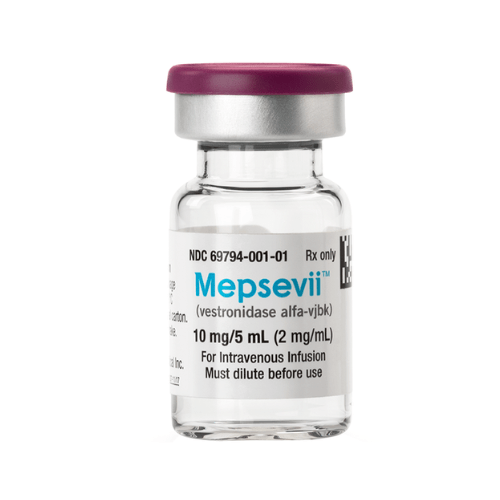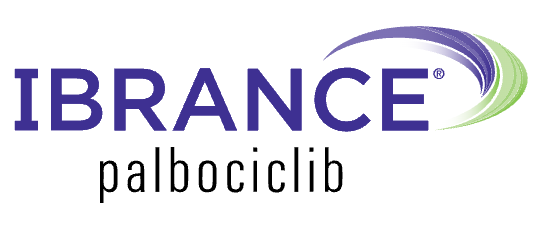
Mucopolysaccharidosis VII (MPS VII), also known as Sly syndrome, is a rare lysosomal disorder caused by a deficiency of the enzyme beta-glucuronidase (GUS). This leads to the accumulation of glycosaminoglycans (GAGs) in cells throughout the body, resulting in multisystem tissue and organ damage. In 2017, Mepsevii (vestronidase alfa-vjbk) received initial approval as a recombinant human lysosomal beta-glucuronidase, offering hope for pediatric and adult patients with MPS VII.
This comprehensive guide explores the indications, dosage and administration, safety profile, and more, providing valuable insights for healthcare professionals
Manufacturer And FDA History
Mepsevii, a revolutionary treatment for Mucopolysaccharidosis Type VII (MPS VII), achieved FDA approval on November 15, 2017. This groundbreaking pharmaceutical breakthrough is developed and brought to the market by Ultragenyx Pharmaceutical Inc.
Indications and Usage
Mepsevii is indicated for the treatment of Mucopolysaccharidosis VII (MPS VII) in pediatric and adult patients. While its efficacy in addressing central nervous system manifestations remains undetermined, Mepsevii has demonstrated positive outcomes in mitigating the impact of Sly syndrome. This section highlights the approved indications and limitations of Mepsevii use.
Dosage and Administration
For optimal therapeutic outcomes, Mepsevii injection is prescribed at a recommended dosage of 4 mg/kg, administered through a biweekly intravenous infusion. To promote patient comfort and reduce the risk of adverse reactions, premedication with a non-sedating antihistamine is recommended 30 to 60 minutes prior to the infusion.
The infusion, spanning approximately 4 hours, incorporates a personalized rate based on the patient’s weight. Comprehensive information on dosage forms, preparation instructions, and administration guidelines is supplied to ensure the secure and effective utilization of Mepsevii in clinical practice.
Contraindications
Mepsevii has no contraindications, making it a viable option for a broad range of MPS VII patients. This section offers insights into the absence of specific contraindications, contributing to the versatility of this treatment.
Warnings and Precautions
- Mepsevii administration poses the risk of anaphylaxis, which can manifest as early as the initial dose.
- Therefore, it is imperative to have immediate medical support available during Mepsevii infusion. To ensure patient safety, close monitoring for signs of anaphylaxis is essential both during and for 60 minutes after the infusion.
- If a patient exhibits any indications of anaphylaxis, the Mepsevii infusion must be promptly discontinued to mitigate potential risks and allow for immediate intervention.
- Highlighting these warnings and precautions ensures healthcare professionals are equipped to manage potential adverse events effectively.
Adverse Reactions
Understanding the adverse reactions associated with Mepsevii is crucial for healthcare professionals. This section details the most common adverse reactions observed during clinical trials, including infusion site extravasation, diarrhea, rash, anaphylaxis, and more. Reporting procedures for suspected adverse reactions are also outlined, enhancing patient safety.
Specific population
Pregnancy: Limited data on Mepsevii injection use during pregnancy. Animal studies showed no adverse effects at exposures up to 10 times the recommended human dose. Background risk for birth defects and miscarriage in this population is unknown. Animal studies demonstrated no developmental effects at doses up to 20 mg/kg.
Lactation: No data on vestronidase alfa-vjbk in human or animal milk. Consider breastfeeding benefits against potential risks to the infant from Mepsevii or the maternal condition.
Pediatric Use: Mepsevii’s safety and effectiveness established in patients under 18 years.
Geriatric Use: No data on patients 65 and over. Differences in response unknown, requiring further investigation.
Clinical Studies
Delve into the clinical studies conducted to evaluate the safety and efficacy of Mepsevii. Insights from Study 301, a randomized start trial, and Study 202, an open-label extension trial, provide valuable information on the drug’s impact on motor function, forced vital capacity, visual acuity, and the six-minute walk test. With a focus on a limited patient population, the results of these studies offer crucial data for healthcare professionals.
Conclusion
Mepsevii stands as a promising treatment for MPS VII, addressing a critical need for patients with this rare lysosomal disorder. Healthcare professionals play a pivotal role in ensuring the safe and effective use of Mepsevii, armed with knowledge about its indications, administration, safety profile, and clinical impact. As ongoing research expands our understanding, Mepsevii remains a beacon of hope for those affected by MPS VII.
FAQs
How should Mepsevii be stored?
Mepsevii should be stored under refrigeration at temperatures between 2°C to 8°C (36°F to 46°F). It should not be frozen. Protecting Mepsevii from light is crucial to maintain its stability and effectiveness.
How to buy Mepsevii online?
Mepsevii can now be purchased online more easily. Contact the SANSFRO team or similar companies that specialise in importing medicines from these regions to obtain this medication, which is only available in the US and Europe.
What is the Mepsevii price?
Several factors and product specifications decide the Mepsevii price. Please contact our Patient Support Team at (91) 93157 05373 or via email at help@sansfro.com for exact pricing information. You can get up-to-date, precise cost information for Mepsevii in the Indian market from our team.
Reference:



